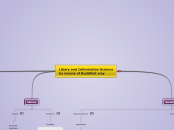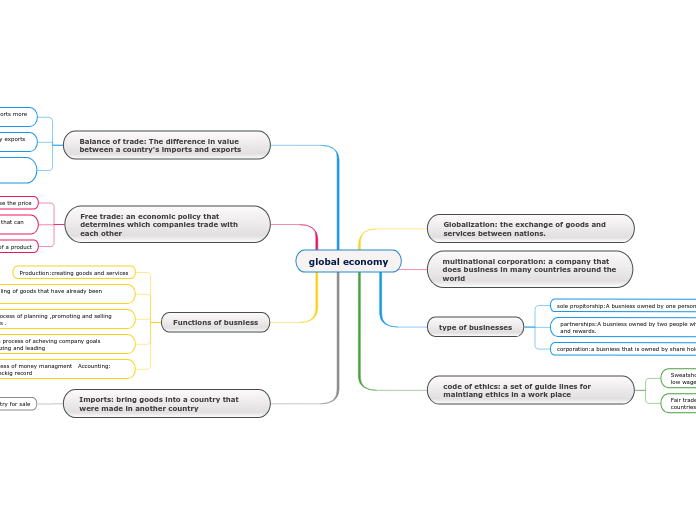Libary and Information Science
by means of Buddhist way
Services
Help & problem solving, Both of user and librarian are human being. They are in human realm and in one of spiritual, they can be in host of demons. Service recipients and service providers may have to face each other in different situations, good or bad, impress or not impress, especially, librarian who is service provider, must have service mind. To do so, it will require a best practice as to the correct and the way of Buddhist as a means to good practice.
Librarian/Information Provider
service mind
customer relationship management
By the way of Buddhist
power of sympathy or solidarity
สังคหพละ (power of sympathy or solidarity)
กำลังการสงเคราะห์ คือ การยึดเหนี่ยวน้ำใจคนและประสานหมู่ชนไว้ในสามัคคี ด้วยการสงเคราะห์ผู้อื่นด้วยสังคหวัตถุ 4 คือ
4.1 ทาน (gift; charity; benefaction)
การให้ การแบ่งปัน สิ่งของต่างๆที่จำเป็นแก่การดำรงชีวิต ตลอดจนเผื่อแผ่กันด้วยไมตรี การให้ที่ดีที่สุด คือ ธรรมทาน ได้แก่ แนะนำสั่งสอนให้ความรู้ความเข้าใจ จนเขารู้จักพึ่งตนเองได้
4.2 เปยยวัชชนะ (kindly or salutary speech)
พูดจับใจ, = ปิยวาจา คือ พูดด้วยน้ำใจหวังดี มุ่งให้เป็นประโยชน์และรู้จักพูดให้เป็นผลดี ทำให้เกิดความเชื่อถือ สนิทสนม และเคารพนับถือกัน การพูดที่เป็นปิยวาจาที่ดีที่สุดคือ หมั่นแสดงธรรม คอยช่วยชี้แจงแนะนำหลักความจริง ความถูกต้องดีงาม แก่ผู้ที่ต้องการคำแนะนำ
4.3 อัตถจริยา (friendly aid; doing good; life of service)
บำเพ็ญประโยชน์ คือ ช่วยเหลือรับใช้ ทำงานสร้างสรรค์ ประพฤติการที่เป็นประโยชน์ การบำเพ็ญประโยชน์ที่ดีที่สุดคือ ช่วยเหลือส่งเสริมคนให้มีความเชื่อถือถูกต้อง (สัทธาสัมปทา) ให้ประพฤติดีงาม (สีลสัมปทา) ให้มีความเสียสละ (จาคสัมปทา) และให้มีปัญญา (ปัญญาสัมปทา)
4.4 สมานัตตตา (equality; impartiality; participation)
มีตนเสมอ คือ เสมอภาค ไม่เอาเปรียบ ไม่ถือสูงต่ำ ร่วมสุข ร่วมทุกข์ด้วย ความเสมอภาคที่ดีที่สุด คือ มีธรรมเสมอกัน มีระดับคุณธรรมทัดเทียมกัน
gift, charity, benefaction
kindly or salutary speech
friendly aid, doing good, life of service
equality, impartiality, participation
The Sublime State
The teachings of the Buddha described four sublime states of mind|:
Metta – Love, or Loving Kindness
Karuna – Compassion
Mudita – Joy
Upekka – Equanimity
These four atitudes are described as excellent or sublime because they are the right or ideal way of conduct towards living beings, as they provide the answers for all situations arising from social contact.
The Four Sublime States :
Are peacemakers in social conflict
Are great healers of wounds suffered in the struggle of existence.
They level social barriers
Build harmonious communities,
Awaken slumbering magnanimity long forgotten
Revive joy and hope long abandoned
Promote human brotherhood against the forces of egotism.
In PDF Format: http://www.buddhanet.net/pdf_file/4sublime_states.pdf
Love or Loving-kindness (metta)
Compassion (karuna)
Sympathetic Joy (mudita)
Equanimity (upekkha)
The Path of Accomplishment
อิทธิบาท ๔ (คุณเครื่องให้ถึงความสำเร็จ, คุณธรรมที่นำไปสู่ความสำเร็จแห่งผลที่มุ่งหมาย - Path of Accomplishment; Basis for Success)
๑. ฉันทะ (ความพอใจ คือ ความต้องการที่จะทำ ใฝ่ใจรักจะทำสิ่งนั้นอยู่เสมอ และปรารถนาจะทำให้ได้ผลดียิ่งๆ ขึ้นไป - Will; Aspiration)
๒. วิริยะ (ความเพียร คือ ขยันหมั่นประกอบสิ่งนั้นด้วยความพยายาม เข้มแข็ง อดทน เอาธุระไม่ท้อถอย - Energy; Effort; Exertion)
๓. จิตตะ (ความคิด คือ ตั้งจิตรับรู้ในสิ่งที่ทำและสิ่งนั้นด้วยความคิด เอาจิตฝักใฝ่ไม่ปล่อยใจให้ฟุ้งซ่านเลื่อนลอยไป - Thoughtfulness; Active Thought)
๔. วิมังสา (ความไตร่ตรอง หรือ ทดลอง คือ หมั่นใช้ปัญญาพิจารณาใคร่ครวญตรวจตราหาเหตุผลและตรวจสอบข้อยิ่งหย่อนในสิ่งที่ทำนั้น มีการวางแผน วัดผล คิดค้นวิธีแก้ไขปรับปรุง เป็นต้น - Investigation; Examination; Reasoning; Testing)
D.III.221.Vbh.216. ที.ปา.๑๑/๒๓๑/๒๓๓; อภิ.วิ.๓๕/๕๐๕/๒๙๒.
http://www.dhammathai.org/dhamma/group04.php?#205
Will, Aspiration
Energy, Effort, Exertion
Thoughtfulness, Active Thought
Investigation, Examination, Reasoning, Testing
Four of the Noble of Eight-fold Path
มรรคมีองค์ ๘ หรือ อัฏฐังคิกมรรค (เรียกเต็มว่า อริยอัฏฐังคิกมรรค แปลว่า ทางมีองค์ ๘ ประการ อันประเสริฐ - The Noble Eightfold Path); องค์ ๘ ของมรรค (มัคคังคะ - Factors or Constituents of the Path) มีดังนี้
๑. สัมมาทิฏฐิ (เห็นชอบ ได้แก่ ความรู้อริยสัจ ๔ หรือ เห็นไตรลักษณ์ หรือ รู้อกุศลและอกุศลมูลกับกุศลและกุศลมูล หรือเห็นปฏิจจสมุปบาท - Right View; Right Understanding)
๒. สัมมาสังกัปปะ (ดำริชอบ ได้แก่ เนกขัมมสังกัป อพยาบาทสังกัป อวิหิงสาสังกัป - Right Thought)
๓. สัมมาวาจา (เจรจาชอบ ได้แก่ วจีสุจริต ๔ - Right Speech)
๔. สัมมากัมมันตะ (กระทำชอบ ได้แก่ กายสุจริต ๓ - Right Action)
๕. สัมมาอาชีวะ (เลี้ยงชีพชอบ ได้แก่ เว้นมิจฉาชีพ ประกอบสัมมาชีพ - Right Livelihood)
๖. สัมมาวายามะ (พยายามชอบ ได้แก่ ปธาน หรือ สัมมัปปธาน ๔ - Right Effort)
๗. สัมมาสติ (ระลึกชอบ ได้แก่ สติปัฏฐาน ๔ - Right Mindfulness)
๘. สัมมาสมาธิ (ตั้งจิตมั่นชอบ ได้แก่ ฌาน ๔ - Right Concentration)
องค์ ๘ ของมรรค จัดเข้าในธรรมขันธ์ ๓ ข้อต้น คือ ข้อ ๓-๔-๕ เป็น ศีล ข้อ ๖-๗-๘ เป็น สมาธิ ข้อ ๑-๒ เป็น ปัญญา
มรรคมีองค์ ๘ นี้ ได้ชื่อว่า มัชฌิมาปฏิปทา แปลว่า ทางสายกลาง เพราะเป็นข้อปฏิบัติอันพอดีที่จะนำไปสู่จุดหมายแห่งความหลุดพ้นเป็นอิสระ ดับทุกข์ ปลอดปัญหา ไม่ติดข้องในที่สุดทั้งสอง คือ กามสุขัลลิกานุโยค และอัตตกิลมถานุโยค
D.II.321; M.I.61; M,III.251; Vbh.235. ที.ม.๑๐/๒๙๙/๓๔๘; ม.มู.๑๒/๑๔๙/๑๒๓; ม.อุ.๑๔/๗๐๔/๔๕๓; อภิ.วิ.๓๕/๕๖๙/๓๐๗.
Right Livelihood
Right Speech
Right Mindfulness
Right Concentration
User/Customer
information behaviors
Ignorance
Learned Wisdom
Open heart
Thought-out Wisdom
Open mind
Developed Wisdom
Open will
Information Literacy
Information ethics
Professional ethics
Library
Systems
acquiring
classifying
shelving
Access tools
ICT
Facilities
Space
Reading area
Stack
Equipment
Pathway
Space area
Comportable cornor
Garden
Green
Atmosphere
Peaceful
Aesthetic
Data, Information, Knowledge, Wisdom
information behavior
need,
seeking,
exchange,
use,
ethic
transfer
Information types & sources
problem issue/need









